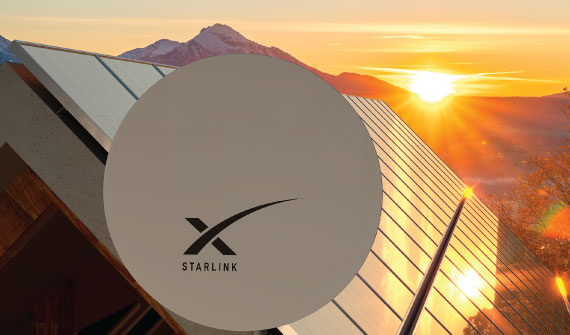The potential for a data price war between Starlink and Kenyan telcos is an intriguing prospect. Both sides bring unique strengths and challenges to the table. The competition between Starlink and Kenyan telcos could significantly impact the telecom landscape in Kenya.
Here are some key factors to consider in this “data price war”:
Starlink

Advantages
Global Coverage: Starlink’s satellite internet service offers coverage in areas that are difficult to reach with traditional infrastructure, including remote and rural regions.
High Speeds: Promises high-speed internet, which can be a major advantage in underserved areas.
Consistent Service: Less susceptible to outages compared to terrestrial networks, especially in regions with unstable infrastructure.
Challenges
Cost: The initial setup cost for Starlink can be high, which might be a barrier for many users in Kenya. Monthly fees are also relatively high compared to local telco data plans.
Regulatory Hurdles: Compliance with local regulations and securing the necessary licenses might pose challenges.
Market Penetration: Building awareness and trust in a new service in a market dominated by established players can be difficult.
Kenyan Telcos
Advantages
Established Infrastructure: Kenyan telcos like Safaricom, Airtel, and Telkom have extensive infrastructure and customer bases.
Affordability: Local telcos offer a variety of data plans at different price points, catering to different income levels.
Local Expertise: Understanding of the local market, customer needs, and regulatory environment gives them an edge.
Mobile Money Integration: Services like M-Pesa offer added value, integrating financial services with telecom services.
Challenges
Coverage Gaps: Rural and remote areas still suffer from inadequate coverage and slow speeds.
Network Congestion: High demand in urban areas can lead to network congestion and slower speeds.
Innovation Pace: The rapid technological advancements by global players like Starlink may put pressure on local telcos to innovate and improve their services.
Factors Affecting the Outcome

Pricing Strategy: Both Starlink and Kenyan telcos will need to carefully consider their pricing strategies. Aggressive pricing can attract customers but also impact profitability.
Speed and Reliability: Consumers will ultimately choose the provider that offers the best combination of speed and reliability.
Coverage: Starlink’s coverage in Kenya will be crucial. If it can provide widespread coverage, especially in rural areas, it could gain a significant advantage.
Regulatory Environment: Government policies and regulations can impact the competitive landscape.
Customer Preference: Ultimately, the consumer will decide the winner based on their specific needs, preferences, and budget.
Potential Outcomes
Increased Competition: The entry of Starlink could drive local telcos to improve their services and lower their prices to retain customers.
Innovation and Investment: Local telcos might invest more in infrastructure and new technologies to compete with Starlink’s offerings.
Market Segmentation: Starlink might carve out a niche market, particularly in remote areas where local telcos have limited presence.
Regulatory Impact: The government’s stance on foreign competition and its regulatory framework will play a crucial role in shaping the competitive landscape.
Conclusion
The “data price war” between Starlink and Kenyan telcos will likely lead to increased competition, potentially benefiting consumers through better services and prices. However, the outcome will depend on various factors, including pricing strategies, regulatory decisions, and the ability of local telcos to innovate and expand their coverage.





Leave a Reply